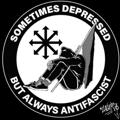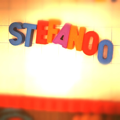cretinodicrescenzago ha recensito Tehanu di Ursula K. Le Guin (Earthsea Cycle, #4)
Come scoprii il fantasy femminista
4 stelle
[Vecchia recensione esportata da altro sito e scritta quando ero giovanissimo: la tengo così com'è, soprattutto le igenuità tagliate con l'accetta, per memoria personale di chi ero un tempo.]
Con The Farthest Shore pensavamo che la storia di Terramare fosse conclusa: Ged aveva salvato il mondo e si era ritirato comodamente a vita privata. Così pensava anche zia Ursula, finché a un certo punto non ha capito che c'era altro da dire sul mondo di Terramare: la nostra autrice si era già permessa di ribaltare nei primi libri lo stereotipo etnico del fantasy europeo e aveva creato un mondo in cui il 90% della popolazione è nero; ora ha deciso di fare un passo ulteriore e di scrivere un romanzo fantasy sui personaggi che, nel fantasy convenzionale, restano sullo sfondo: contadine di mezza età, streghe guaritrici di villaggio, uomini esausti di ritorno da avventure eroiche, e soprattutto bambini la cui …
[Vecchia recensione esportata da altro sito e scritta quando ero giovanissimo: la tengo così com'è, soprattutto le igenuità tagliate con l'accetta, per memoria personale di chi ero un tempo.]
Con The Farthest Shore pensavamo che la storia di Terramare fosse conclusa: Ged aveva salvato il mondo e si era ritirato comodamente a vita privata. Così pensava anche zia Ursula, finché a un certo punto non ha capito che c'era altro da dire sul mondo di Terramare: la nostra autrice si era già permessa di ribaltare nei primi libri lo stereotipo etnico del fantasy europeo e aveva creato un mondo in cui il 90% della popolazione è nero; ora ha deciso di fare un passo ulteriore e di scrivere un romanzo fantasy sui personaggi che, nel fantasy convenzionale, restano sullo sfondo: contadine di mezza età, streghe guaritrici di villaggio, uomini esausti di ritorno da avventure eroiche, e soprattutto bambini la cui infanzia è stata distrutta dalla malvagità umana, e che non scopriranno mai di essere i Prescelti. Tehanu, infatti, si svolge subito dopo The Farthest Shore e ha per protagonista Tenar, l'eroina di The Tombs of Atuan, ormai invecchiata e tranquillamente insediata sull'isola di Gont, e la sua lotta quotidiana contro tanti fardelli che al tempo stesso sono sia "Terramarini" sia tremendamente verisimili: un lutto in famiglia, una figlia adottiva vittima di terribili abusi, un migliore amico in crisi d'identità, e soprattutto il sessimo diffuso in tutta la società sia fra gli uomini sia fra le donne, che Tenar (da sempre una persona fuori dagli schemi) percepisce benissimo e combatte con tutte le sue forze. Il risultato è un dramma psicologico di lotta contro il pregiudizio e di guarigione faticosa, che ti riempie di cazzotti allo stomaco e poi ti asciuga le lacrime; lo considero appena inferiore a The Tombs of Atuan (che secondo me ha un ritmo più sotenuto), e quindi nel complesso ottimo.



